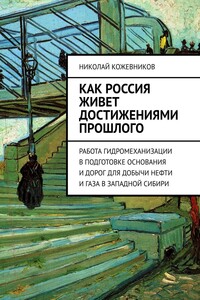Двадцать ведущих политиков России.
Декабрь 1997 года / Средний балл без знака влияния / Средний балл со знаком влияния
Декабрь 2007 года / Средний балл без знака влияния / Средний балл со знаком влияния
#Фамилия, имя, отчество#Фамилия, имя, отчество
1Ельцин Б.Н., президент РФ7,91+ 3,98
1Путин В.В., президент РФ8,57+ 3,78
2Черномырдин В.С., председатель правительства РФ6,15+ 5,29
2Медведев Д.А., вновь избранный, но не вступивший в должность президент7,32+ 5,17
3Лужков Ю.М., мэр Москвы5,81+ 4,45
3-4Кудрин А.Л., вице-премьер и министр финансов5,51+ 1,13
4Березовский Б.А., бизнесмен5,58- 0,24
3-4Сурков В.Ю., заместитель главы администрации президента5,51+ 1,28
5Юмашев В.Б., руководитель администрации президента5,51+ 3,00
5Алексий II, Патриарх Московский и всея Руси5,23+ 4,49
6Чубайс А.Б., первый вице-премьер5,50+ 2,55
6Лужков Ю.М., мэр Москвы5,02+ 0,84
7Дьяченко Т.Б., советник президента5,40+ 1,12
7Собянин С.С., глава администрации президента4,98+ 2,35
8Строев Е.С., председатель СФ5,29+ 3,93
8Сечин И.И., заместитель главы администрации президента4,92+ 0,56
9Вяхирев Р.И., глава ОАО "Газпром"5,25+ 4,16
9Грызлов Б.В., председатель ГД4,84- 0,24
10Примаков Е.М., министр иностранных дел5,18+ 4,57
10Патрушев Н.П., директор ФСБ4,82+ 2,63
11Немцов Б.Е., первый вице-премьер5,07+ 2,54
11Лавров С.В., министр иностранных дел4,81+ 2,63
12Селезнев Г.Н., председатель ГД4,90+ 2,73
12Зубков В.А., председатель правительства РФ4,70+ 3,16
13Дубинин С.К., председатель Центрального банка4,89+ 4,34
13Абрамович Р.А., губернатор Чукотского АО4,56- 0,50
14Потанин В.О., глава ОНЭКСИМ Банка4,58+ 0,90
14Иванов С.Б., первый заместитель председателя правительства РФ4,54+ 2,54
15Алексий II, Патриарх Московский и всея Руси4,49+ 3,74
15Дерипаска О.В., глава группы "Базовый элемент"4,42+ 1,64
16-17Зюганов Г.А., лидер КПРФ4,35- 0,51
16Миллер А.Б., глава ОАО "Газпром"4,39+ 1,16
16-17Сергеев И.Д., министр обороны4,35+ 3,70
17Козак Д.Н., глава Минрегионразвития4,35+ 3,43
18Гусинский В.А., глава холдинга ЗАО "Медиа-Мост"4,27+ 1,94
18Шувалов И.И., помощник президента4,34+ 2,16
19Явлинский Г.А., лидер партии "Яблоко"4,18+ 3,40
19Сердюков А.Э., министр обороны4,31+ 0,33
20Ястржембский С.В., пресс-секретарь президента4,12+ 2,45
20Чемезов С.В., глава "Ростехнологий"4,20+ 1,86
(Автор: Александр Комозин)

